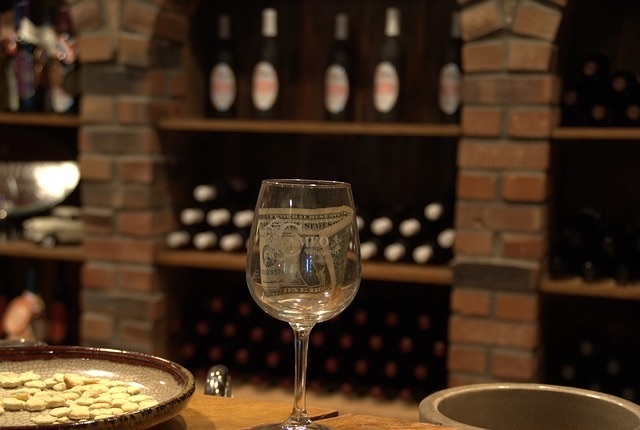
Fine wine collectors are always searching for exciting bottles to add to their collection. Whether it’s an elusive DRC or a cult wine like Screaming Eagle or Le Pin, a fine wine is something to be deeply admired – and acquired, if possible.
Of course, the time may come when you need to sell off your collection, in its entirety or in part. If you find yourself on the selling end, you might be unsure of the best course of action. You’ll want guidance on determining your wine's value and on identifying where to sell your carefully curated collection.
Selling Your Wine Collection: Tips for Success
Selling your wine collection and making a good profit doesn’t need to cause confusion. You can take the reins and do your own research, or you can call in experts to do the work for you. What you do need to decide, however, is what part of your collection you’re ready to hand over, and whether you plan to use the proceeds for paying down expenses, or to reinvest them in new bottles.
Why Sell Your Collection? Three Common Reasons
You're Running Out of Room
The most common reason that collectors sell their wines is that they're simply running out of space. This dilemma is perfectly understandable: fine wine incites passion among collectors, causing them to seek out and purchase wines they can’t help but cherish.
While there are a number of consistently sought-after wines, others are just as important to building a complete collection. And what happens when you've acquired more than you have room for? You’ll enter your private cellar one evening and discover that bottles are spilling out of every nook and cranny, leaving you without a space to put your latest acquisition. When that day arrives, you’ll know that it’s time to sell off some bottles.
You Need the Money
You might also find yourself asking “Should I sell my vintage wine?” when exigent circumstances are compelling you to do so. If you’ve found yourself or your family in a situation requiring immediate cash flow, you might decide to cash in some of your fine wines.
Your Collection Has Matured
And finally, you might choose to sell because your carefully stored wine investment has reached maturity. Your wines will command the highest price when they are at or are approaching their peak for taste and quality. Selling now ensures that you receive the most profit possible, giving you good return that you can then reinvest in a brand new collection.
How to Evaluate a Wine Collection
Unless you are both a collector and appraiser, you won’t know the precise value of your wine collection. If you plan to conduct your own research, start by searching wine valuation databases to determine average selling prices, then reading vintage charts to see when your wines will reach their highest quality.
You’ll also want to research wine scores – most rating systems use the 100-point system – and take into account the storage conditions for your wines.
There are two parts to determining actual value. The first component is the value of the wine itself, including the vineyard/terroir, the producer’s techniques and the wine’s classification. The second component comes down to how well you treated each bottle. Proper storage conditions matter and can have a direct influence on the final selling price.
Along with appropriate storage, documentation also affects overall value. Proven provenance can back up your claims as to where you purchased the wine, how you aged it and what each bottle contains, all of which boosts the price.
If you prefer to let the experts determine value, you can contact appraisers who will present a value without taking action, or you can contact a selling platform that will combine appraisal with an offer.
Where to Sell Your Wine
Selling Offline
Many wine collectors sell their wines to auction houses like Christie’s, Sotheby’s, Zachys, Bonhams, Heritage, or Acker, Merrell & Condit. Each auction house has specific requirements and some may only accept large collections valued at a certain price point.
Auction houses often have offline and online auctions, and they serve a wide variety of interested buyers. If you sell your wine to an auction house, you should expect them to make deductions for insurance, taxes and a seller’s fee.
If you prefer to keep your collection closer to home, you could sell to local or regional high-end restaurants. More and more restaurants are becoming interested in acquiring aged, ready-to-drink wines for their customers.
However, liquor laws can put restrictions on sales, such as only allowing sales to licensed restaurants and requiring additional labels denoting collection origin. You’ll need to check your local laws to ensure you’re in compliance.
Selling Online
While there are numerous online platforms for selling wine, the best and most convenient option is JJ Buckley Fine Wines. Our team of wine experts will guide you along each step of the selling process, from explaining what we require for your wine inventory to providing a competitive initial offer and even durable shipping materials. We carefully inspect each item once it reaches our facility, finalizing our offer and sending payment within 10 business days.
Why should you sell to JJ Buckley Fine Wines? Not only are we highly skilled wine experts, but you can sell to us whether you want to transfer one bottle or a whole collection of fine wines. And with no minimum required, your fine wine won't need to be bundled before you can contact our team. The hunt for a reputable outlet to sell your fine wines stops here.
From selling wine to make room in your cellar to cashing in on wine that's reached its peak investment potential, there are many reasons why you might want to sell off part of your fine wine collection. We're here to help, whether you're interested in selling your collection or you're ready to invest in exciting new bottles of fine wine.